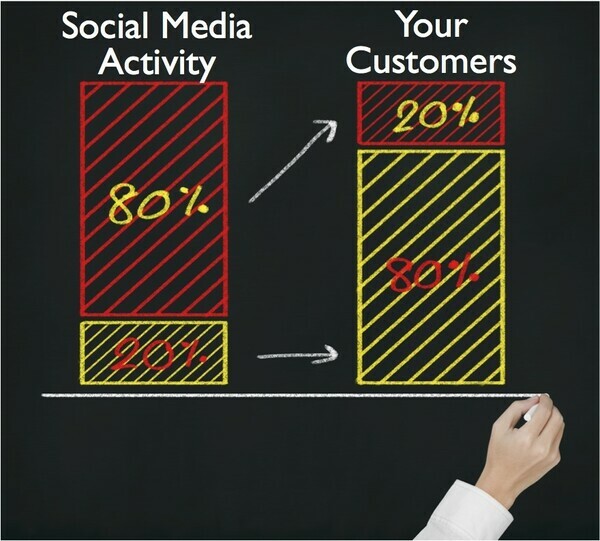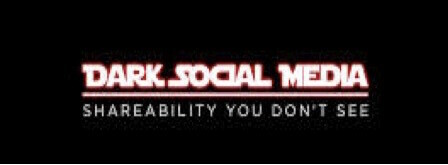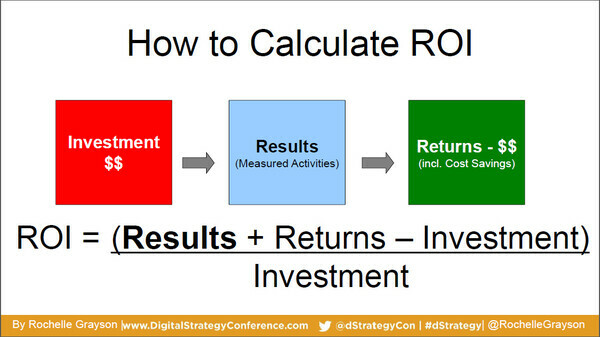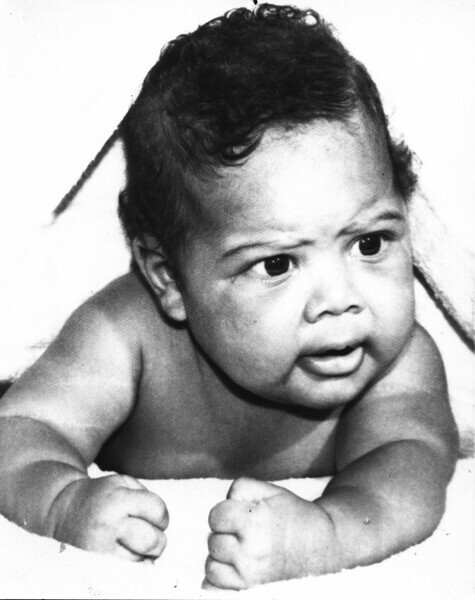Random Musings
 Since I teach social media strategy, marketing, and monetization, I’m always being asked by my students and colleagues how they can use social media to improve their business, career, and in general, their lives! While social media is incredibly powerful, there are also many myths about social media that need to be addressed.
Since I teach social media strategy, marketing, and monetization, I’m always being asked by my students and colleagues how they can use social media to improve their business, career, and in general, their lives! While social media is incredibly powerful, there are also many myths about social media that need to be addressed.
So, in this post (which is a summary of my presentation from the Digital Strategy Conference), I will challenge you be much more critical of social media and I will highlight what social media is not telling you!
-
Social media is NOT a reflection of all your customers
As the Pareto principle tells us, a large part of the social media activity you see may only translate to a small percentage of your entire customer base. If you’re interested in a more detailed study on this pattern, I recommend you to read this Vision Critical study.
Key takeaway: Be careful about extrapolating behaviours from your most active social media customers to your entire customer base.
-
Sharing happens on many channels outside of social media networks
You need to understand that a great deal of sharing happens via the “Dark Social”, which are communication channels such as in-person conversations, text messages, phone, and email. Unfortunately, many of your analytics tools are not capturing these activities.
Key takeway: Your “most shared” content isn’t necessarily what you see within the “Light Social Networks”, e.g. Facebook, Twitter, Instagram, etc.
-
Having big data sets is not enough! You also need knowledgable analysts
Google is one of the best examples of a “big data” set that most of us use daily! That said, spammers and content owners are always looking for ways to game the system. The #1 result in a Google search is not always the result or answer we seek. Also, within Big Data, there may be bias, i.e. an echo chamber with lots of people talking to similar people.So, if you’re leaving your final social media analysis to a computer or algorithm or just taking the first “result”, you may not be getting the appropriate answer, result, or trend you seek. Definitely use automated tools to narrow down your options. But, finding meaning in these options requires extensive understanding, interpretation, and analysis of numerous variables.
Key takeaway: Humans are still best at turning information into actionable wisdom and knowledge.
-
If you cannot put a value ($) on your social media results – stop investing in monitoring and measuring them!
This is perhaps my greatest “pet peeve”. If you are monitoring likes, shares, follows, downloads, etc. and cannot tell me how these activities are concretely adding value to your organization, then you should stop. While many social media metrics are easy to measure, it is your responsibility to be able to translate those results into tangible value for your organization. If you cannot do this, I recommend taking some time to better understand your customer and sales journey, as well as how to calculate social media ROI! (Fortunately, for you, UBC offers a class in exactly this!)
Key takeway: Everything you do and get via social media needs to add concrete value to your organization!
As I said above, social media is an amazing communication channel and has truly opened up the lines of communication between organizations and their communities. However, as with any communication or marketing channel, it is only one of many. Depending on your customers and audience, social media may or may not have the information you need to grow and exceed your organizational goals and objectives. Use it critically and responsibly!
 Today’s my birthday and I’m overwhelmed by the number of well-wishes I have already received! Birthdays are great times to reflect and today, I’d really like to give special thanks to:
Today’s my birthday and I’m overwhelmed by the number of well-wishes I have already received! Birthdays are great times to reflect and today, I’d really like to give special thanks to:
- My amazing husband, Geoffrey Meredith, who is truly my best friend, my soul mate and my muse; every day with him is a day to celebrate! I love you dearly!
- My wonderful and supportive family; my mom, dad, brother, step-father, step-mother and extended family have always been there for me, through thick and thin, and they have been my greatest cheerleaders! Thank you for guiding me and for shaping me into the woman I am today!
- My incredible circle of friends; as I get older, I realize how important and rare true friends really are and I absolutely cherish them! Thank you for being part of my “family of choice”!
That said, I also thought it might be interesting to mention 10 things about myself that some of you may or may not know:
- As a child, I bit my nails. I can’t remember when I stopped, but I do remember being told by family members that I’d never get a husband if I bit my nails. I don’t buy that argument, but I did find a phenomenal husband and I don’t bite my nails :-)
- When I was in High School (in Germany), I was the lead singer of the band, Bella Zooth! It was a R&B band and we toured within Germany and even did a recording at a studio in Schwäbisch Gmünd. Unfortunately, I never got a copy. So, if anyone can track that down, I’d be really curious to hear it :-)
- Speaking of lost copies, I was also interviewed and sang on a Ghanaian Broadcasting Corporation (GBC) program when I lived in Accra in the early 90’s. Once again, if anyone knows how I might track down a copy, I’d sure be thrilled (and cringe) to see it again :-)
- I still have all of my teeth, including ALL of my wisdom teeth! And, I also have a gap between my front two teeth, which merely supports the fact that I clearly have a big mouth :-)
- I do not drink coffee and perhaps more interestingly, I don’t like chocolate! I hear the gasping already :-)
- Speaking of food, I would have to say that my favorite flavor is coconut! I simply can’t say “no” to anything with coconut in it; just don’t contaminate it with chocolate :-)
- I love loud colored clothes; anyone who meets me know this! But, what you probably don’t know is that ~99% of my wardrobe is second-hand! I love a great deal and can’t remember the last time I bought a brand new piece of clothing :-)
- Speaking of clothing, I love to knit and sew! Yes, many pieces of my wardrobe I made myself and all through high school and college, I knit most of my sweaters, skirts and dresses :-)
- I lost 145 lbs and have kept it off for 11 years! This is probably one of my proudest achievements! :-)
- My husband and I met 20 years ago when Match.com was in Beta! I have to say the odds were truly in my favor since there weren’t many women in the system :-) My husband was the first “match” on my list and we’ve been together ever since! (BTW, they gave us lifetime memberships, which we both still have; not that we have any need for it :-) )
So, there are 10 things about me! What 10 things would be on your list?
Thanks again, for all the birthday wishes! I will definitely have a great birthday; how could I not :-) I really look forward to the upcoming year because each and every year has consistently been better than the last!
 Over the past couple of weeks, I have been following the heated online discussions and twitter conversations about CNN’s documentary, Black in America: The New Promised Land – Silicon Valley, which profiled Black entrepreneurs in Silicon Valley and aired last night. In response to some preliminary clips that were distributed, we have seen a defensive and candid post by Michael Arrington, a rebuttal by Soledad O’Brien, and many very thoughtful and astute posts like Curtiss Pope’s How Black Entrepreneurs Can Succeed in Silicon Valley, and Ameen Safir’s How Pattern Matching Can Work for Minority Entrepreneurs.
Over the past couple of weeks, I have been following the heated online discussions and twitter conversations about CNN’s documentary, Black in America: The New Promised Land – Silicon Valley, which profiled Black entrepreneurs in Silicon Valley and aired last night. In response to some preliminary clips that were distributed, we have seen a defensive and candid post by Michael Arrington, a rebuttal by Soledad O’Brien, and many very thoughtful and astute posts like Curtiss Pope’s How Black Entrepreneurs Can Succeed in Silicon Valley, and Ameen Safir’s How Pattern Matching Can Work for Minority Entrepreneurs.
As a half-Puerto-Rican, half-Black, American, female entrepreneur, who grew up in Germany and now lives in Canada (yes, you can tick off quite a few boxes with me :-) I have to say a sincere “Thank You” to Mike, Soledad, and all the other Black entrepreneurs who have participated in this online discussion! Through this conversation, I have discovered several other minority entrepreneurs and have read about their innovative ventures. What I have most appreciated about many of the posts in this aftermath is the focus on building a solid business!
I am a serial entrepreneur. My first start-up sold, the second one was too early to market and was tabled, the third one has turned into a “lifestyle business” and is growing modestly and bringing in revenues, the fourth one was only a feature and never meant be a business, and I’m currently launching my 5th, an innovative digital and social publishing platform. I cannot claim to speak for other black, Latino, or female entrepreneurs. However, I can speak personally to the satisfaction of building something “meaty” that has the potential of truly disrupting business-as-usual. And, as someone who has been down this path a few times, it is not as easy as many suggest.
I, too, am currently raising the next round of financing (as a start-up CEO, when are you not doing this?!). And, I sincerely hope that the financing I receive is based on my business and the potential it has to give investors (and me!) a HUGE return. I do NOT want to be “given” anything simply because I represent a “diversity quota”. I want to be backed by investors who believe in what I am building and believe that my business deserves their support!
Once again, thank you Mike, Soledad, and all the others for recognizing that the issue is much bigger than race, gender, geo-location, or whatever. Yes, we all bring our cumulative, personal experiences to each of our ventures and that diversity of perspectives should add value to each new opportunity. That said, it is ultimately about building a truly disruptive, innovative and solid business. I firmly believe I am building such a business and my job, as is the job of any entrepreneur, is to sell everyone I can on my vision, the business potential and my ability to deliver everything I say and more! No less, and hopefully a lot more!
 A recent New York Time article reports that young people are less interested in (long-form) content on blogs and are more interested in (short-form) content on Facebook, Twitter, and Tumblr. A colleague of mine, Mark Evans, writes a great post as to why he still sees value in blogging and the additional benefits he gets through his blog. For those of you that know me, you’ve probably heard me say MANY times, that I really do not like writing (which is why there are so few blog posts on my blog :-) ). That said, I do find this discussion around long-form versus short-form content quite interesting!
A recent New York Time article reports that young people are less interested in (long-form) content on blogs and are more interested in (short-form) content on Facebook, Twitter, and Tumblr. A colleague of mine, Mark Evans, writes a great post as to why he still sees value in blogging and the additional benefits he gets through his blog. For those of you that know me, you’ve probably heard me say MANY times, that I really do not like writing (which is why there are so few blog posts on my blog :-) ). That said, I do find this discussion around long-form versus short-form content quite interesting!
Over the weekend, I had an exchange with another colleague of mine about a great online video that was an hour long (for those of you interested, it’s about How and Why Ideas Spread in Social Media). My colleague mentioned that the video would be much more “viral” if it were shorter and better edited.
I did not disagree, but also argued that SOMETIMES, if something is important to you/your career, you need to invest the time and the effort to learn about complex insights and wisdom. And, in fact, it is perhaps those who do take the time to watch and listen, who may come out ahead.
Now, I’m the CEO of a publishing technology company, BookRiff, and I teach Social Media Strategy & Marketing and Social Media Monetization at the University of British Columbia. I firmly believe that BOTH long-form and short-form content have their places. That said, I am always surprised at the expectations of many people who believe they can quickly become “experts” or “gurus” because they can get bite-sized pieces of information quickly and efficiently.
Perhaps I am just an “Old Fart”, who has spent many, many hours reading, listening, watching, and networking. Maybe I’m missing something in the “New School Way of Learning”. But, I do believe that sometimes we simply have to put in the time and effort. For some, it will be spending hours using the new tools and coming to their own conclusions. For others, it will be spending the time reading others’ summaries and lessons learned. In either case, I do believe that there are few short-cuts to climbing the mountain. The paths may be different, but in the end, they all require a certain investment of time, money, and effort. Whether you choose to spend your time, money and/or effort is purely a personal choice. But, thinking that everything can be internalized and distilled down to 140 characters is probably not the answer either!
What do you think?! Am I just an “Old Fart” who’s hoping experience, thought, and analysis still count for something or am I simply missing something in the “New School Way” of communicating, building relationships, and learning? I’d love to hear your thoughts!
 Seth Godin is making waves in the publishing world today! He has stated that he is giving up on the traditional publishing and will pursue other distribution channels. I am finding the responses and comments quite intriguing and insightful. Some are arguing that Seth Godin isn’t a “real author”, others are saying “why should we care or listen to what he has to say”, and others are saying “yes” and “Amen”. Clearly, he has touched a nerve!
Seth Godin is making waves in the publishing world today! He has stated that he is giving up on the traditional publishing and will pursue other distribution channels. I am finding the responses and comments quite intriguing and insightful. Some are arguing that Seth Godin isn’t a “real author”, others are saying “why should we care or listen to what he has to say”, and others are saying “yes” and “Amen”. Clearly, he has touched a nerve!
Unfortunately, many are focusing on Seth Godin or digital publishing trends, and not on the value that publishers need to offer. I strongly believe that the publishers are (and will continue to be) necessary for some authors and for some areas of content. However, to say that their value is equal for ALL writers is incorrect. There will be some areas where authors will be able to market and distribute their content on their own. Will this only be for well-known authors? It will definitely be easier for them, but I wouldn’t say categorically that that is true either. Will it be easier for how-to/advice/resource writers? Again, “maybe” is the only answer that is correct.
What I can say is that publishers will need to clearly articulate what they can do for authors and how working with them will increase an author’s chance of success and ultimately, recognition and rewards. With increasing amounts of “published” content, we will still need human filters and domain experts to filter out the noise. Publishers can and have filled this role — as trusted sources, trendspotters, and domain experts. The marketing and distribution tools of the publishing industry have changed and the path to the consumer is shorter. However, the ROLE of publishers may be more important now than ever!
What do you think?!
 There has been a great deal of discussion about Amazon’s recent announcement and pricing for the Kindle 3. (And yes, I will probably be purchasing one!) Many are saying that the Kindle 3 may very well put an end to the eReader wars, with Kindle clearly on top. (The iPad appears to be in a category of its own.) I still think it’s too early to say. That said, Amazon has made an interesting business move and here’s why…
There has been a great deal of discussion about Amazon’s recent announcement and pricing for the Kindle 3. (And yes, I will probably be purchasing one!) Many are saying that the Kindle 3 may very well put an end to the eReader wars, with Kindle clearly on top. (The iPad appears to be in a category of its own.) I still think it’s too early to say. That said, Amazon has made an interesting business move and here’s why…
Much like Apple, Amazon is building an ecosystem around digital content and the Kindle eReader. But, unlike Apple, Amazon is betting on digital content not the hardware. It is well known that Apple makes more significant margins on hardware sales and not as much on iTunes or its Apps Store. (I haven’t seen any figures yet for the iBookstore.) Amazon seems to be following a different approach and is betting on its Kindle/Amazon Stores to be the revenue drivers. (I guess it is similar to the HP printer model, where profits are generated from the consumables and not the hardware.)
Given Amazon’s leadership position in the ecommerce and online shopping space this makes perfect sense and it will be interesting to see if there comes a time when the Kindle will even be sold at a loss (people are already saying that it’ll be $99 within the next year).
Both Amazon and Apple are playing to their strengths and I look forward to seeing how these business models pan out in the coming months! Will it be an Amazon vs. Apple world? What role might Google play with the launch of Google Editions? Can B&N or Kobo come from behind?
What I do know is that exciting times are ahead and I am thrilled to be a part of this amazing publishing transition!
 Yesterday, I read a great post by Alex Samuel, "Even in a virtual world, where you live still matters". Her thoughts were incredibly apropos because recently, I’ve been stewing about what the city of Vancouver has to offer business people like myself. As I stated almost two years ago, Vancouver has the potential to truly become a global business centre. I’m sitting on several municipal, regional, and industry Boards to play my part and what I hear over and over again is that Vancouver lacks the senior management talent and financing/investment ecosystems to reach its full potential. And, I couldn’t agree more!
Yesterday, I read a great post by Alex Samuel, "Even in a virtual world, where you live still matters". Her thoughts were incredibly apropos because recently, I’ve been stewing about what the city of Vancouver has to offer business people like myself. As I stated almost two years ago, Vancouver has the potential to truly become a global business centre. I’m sitting on several municipal, regional, and industry Boards to play my part and what I hear over and over again is that Vancouver lacks the senior management talent and financing/investment ecosystems to reach its full potential. And, I couldn’t agree more!
I’m often referred to as one the “Exotic Birds” here in Vancouver. (I’m not sure if that’s a good thing or not. ;-) ) I have lots of senior management, operations, finance and investment experience and the city would like to court more people like me. So, why aren’t there more people like me in Vancouver? Well, based on my experience, I think there needs to be a realignment of what it “costs” to be a global business player.
Recently, I’ve been approached by several local companies and organizations to join their teams, and while the opportunities have been very exciting, the conversations have come to a screeching halt (a little exaggerated) once dollars start being discussed. Now, I do understand that Vancouver isn’t NY, San Francisco or Toronto, but why am I consistently presented with compensation packages that equate to what I earned 10 years ago?! (And, this is not to point the finger at any one Vancouver company; this has happened numerous times.) At the same time, I’m being heavily courted by companies in other cities that are offering packages that are 2-3 times higher.
I really want to stay in Vancouver! But, as a business person, I am trained to balance opportunities with maximizing revenues. And, that’s exactly what these companies want me to do, once hired. So, why would I act any differently when it comes to my own earning potential. Now, I am not completely mercenary. (Frankly, if I were, I would be much richer and definitely NOT living in Vancouver.)
So, where does that leave us… well, I would like to see a shift in valuing those very skills that seem to be lacking here. Right now, we aren’t raising the bar to make Vancouver business opportunities attractive on a global scale! (To this point, I have spoken with at least a dozen phenomenal/qualified/ambitious colleagues in the past two weeks and we all joke that we’ll meet at YVR on our way to companies that do value us.)
Vancouver did a fabulous job raising the bar for the Olympics and for two weeks it truly felt like a global city! Now, we need to take that same energy and investment to make it become a world-class business environment! I’m not leaving, yet…but, I am putting the city on notice! ;-)
 Happy Labor Day! Today is the last day of summer and now, it’s time to get back to business as the “New Year” begins. I’m re-reading a few books/posts as I prepare for my next venture (yes, there is something incubating and I’ll report back in a few weeks or so :-) )
Happy Labor Day! Today is the last day of summer and now, it’s time to get back to business as the “New Year” begins. I’m re-reading a few books/posts as I prepare for my next venture (yes, there is something incubating and I’ll report back in a few weeks or so :-) )
I am finding some interesting (and unsettling) discussions about “old” leaders/entrepreneurs. On the interesting side, there was a post in Techncrunch this morning about the benefits of older entrepreneur leaders, and I was also impressed with Jay-Z’s recent interview on Bill Maher, especially in answering why an “old” man (40) like him is still successful in a industry that’s all about youth. On the unsettling side, I do get a sense that a quote in Seth Godin’s, Tribes, best describes what I sometimes hear/sense from younger entrepreneurs:
…some people admire the new and stylish far more than they respect the proven state of affairs…As a result, new ways of doing things, new jobs, new opportunities, and new faces become ever more important.
Well, technically, I now fall into the “old” category! (Although, thanks to my parents, I’m told I look younger ;-) ) Am I one of those “old, stodgy, outdated” leaders/entrepreneurs?! I’ve always said:
I’m a Gen Y in a Gen X body! I’ve always been a change agent and have even been too early to a market.
So, what makes me and my “older” colleagues successful in industries that seem to value youth?! I would argue that it is a combination of curiosity, flexibility, AND experience allowing us to have a unique perspective, as well as, partnering with 20-somethings who have the energy, time, and market insight to launch new and sustainable ideas!
Perhaps, I’m only saying this because I’m 40. If I were 28, I might be disagreeing with this argument. There are still a lot of amazing opportunities out there and I plan to bring ALL of my experience (and flashiness :-) ) to every endeavor I’m part of. I’ll be sure to keep you posted…
Happy New Year!
 Today, I read a great analysis of the Media industry by Paul Sweeting that rang so true! Here’s what Paul said:
Today, I read a great analysis of the Media industry by Paul Sweeting that rang so true! Here’s what Paul said:
On the Web, value is not created primarily by either content or distribution. Users create value out of content through the use of tools that enable them to do something with the content, whether it’s to move it, share it, reformat it, store it, discover it, mash it up or embed it. What the media companies most sorely lack is not sufficient content or adequate distribution but a workable mechanism for capturing a fair share of the value users are creating for themselves. Ultimately, media companies need to become not distributors or content owners but enablers.
At Work at Play, we often have this conversation with media clients — both large and small. It is always interesting to propose a scenario to them in which neither the content nor the distribution have significant value and to see where the conversation meanders. When we present our model of Audience Engagement Value, most clients are initially quite surprised. (I know this sounds like B-School/Corporate-speak, but bear with me ;-) ) What this all boils down to is the fact that today’s audiences (however you define “audiences”) want to do something with content — theirs, yours, it doesn’t really matter.
So, the real questions on the table are: What is that “something” you’re going to let them do?! And, is there perceived value to them in doing that?!
 I just read a very interesting analysis by Shelly Palmer about Margins vs. Ratings and the Future of TV. Shelly makes some great points and looks to the past to better understand the future. As a business person, I find such articles really thought-provoking because they provide an important reminder of the fine balance between business goals and creativity, especially as these pertain to entertainment.
I just read a very interesting analysis by Shelly Palmer about Margins vs. Ratings and the Future of TV. Shelly makes some great points and looks to the past to better understand the future. As a business person, I find such articles really thought-provoking because they provide an important reminder of the fine balance between business goals and creativity, especially as these pertain to entertainment.
Starting tomorrow, I will be holding several off-site strategic planning sessions for my company and I’m really looking forward to hearing the creative ideas from my staff! Clearly, I want to my company to succeed financially, and at the same time, I want to foster an environment of extreme creativity and exploration! It’s been proven time and time again that without a strong creative vision, a sustainable business model is hard to achieve.
So, it’s time for me to put the “how” aside for a few days and start thinking about the “implausible”! I once worked for a president, who asked us all to be BODACIOUS in our goals! I really like that word and I think I just might borrow it :-)